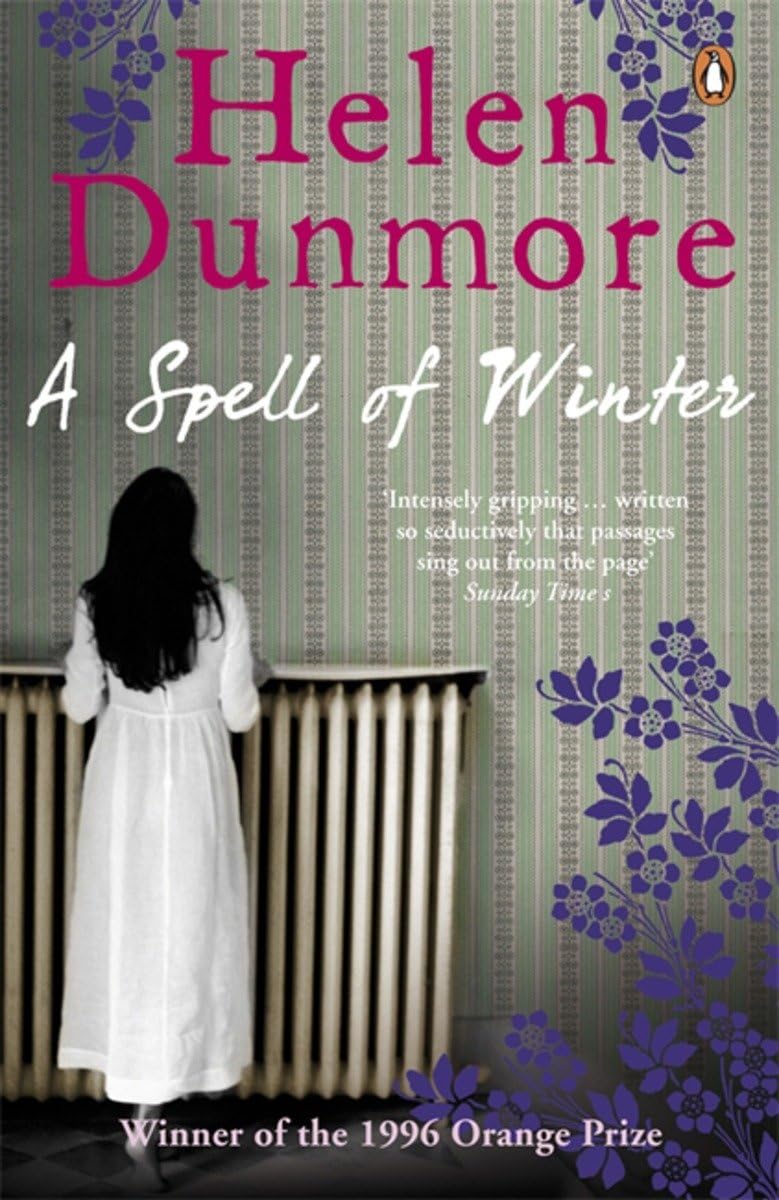
A Spell of Winter: WINNER OF THE WOMEN'S PRIZE FOR FICTION
FREE Shipping
A Spell of Winter: WINNER OF THE WOMEN'S PRIZE FOR FICTION
- Brand: Unbranded

Description
Dunmore's writing is the star of the show here: gorgeously lyrical, evocative and atmospheric, alive with startling imagery and unexpected conjunctions. But there are too many long descriptions of woodland and flowers (so many flowers) that make the pace sluggish and congest the text. Told in gorgeous prose, A Spell of Winter is a strangely beguiling tale that explores forbidden love, the burden of secrets, and the struggle to escape the cloying inheritance of family.
I wonder sometimes if it’s the people themselves who keep you company, or the idea of them. The idea you have of them.” I’d say you have to be in the right mood for this book, to be willing to wade through the narrative dream in a state of confusion to get to its revelations. I ended up finding it very impactful: sad and true and beautiful. There’s an intense scene in the book after which Catherine is unsure of what really happened. The writing reflects that kind of state of mind: an uncertainty as to what is real and what is imagined. It had a silver shine on it,' said Kate, 'like the shine on money. But underneath the flesh was puffed up and purple. And the hand was swollen bigger than any hand I'd ever seen.'This novel is set in England in the era of World War I. The war starts later in the novel, which was the first clue to the time in which the story is set. Cathy and her brother Rob live on a rural estate with their grandfather. Their mother abandoned her family and left for warmer parts of Europe. Their father's health declined after this and he was eventually committed to a sanatorium where he died. The siblings are left to their own devices with only an unlikeable governess, and a single servant to see to their needs. A Spell of Winter is a difficult book to categorize and difficult to explain without giving too much away - but it follows siblings Cathy and Rob who have spent their lives in a quasi-abandoned manor in the English countryside which belonged to their parents; their father is now dead and their mother ran off when they were young. As adults, Cathy and Rob's relationship begins to develop into something forbidden, and it sets off a tragic chain of events that spread into the years of the First World War. Because of this, and also the beauty of the prose, it reminded me very much of To the Lighthouse, which I loved the first time for its revelations, but found frustratingly hard to follow on my second read. It also reminded me of The Awakening. Like those books, this is about observations and relationships and development and the impact of trauma.
A few relatively normal characters keep the novel grounded: There is the eccentric grandfather with whom the children live, their mother having long ago fled to the Continent and their father having eventually died in the sanatorium. There is Kate, the Irish maid of all work, the anti-Miss Gallagher, the good servant as opposed to the bad. And there is the Austen-esque figure of their wealthy neighbor, Mr. Bullivant, who woos Cathy in a discreet fashion, sends her lemons from his Italian villa, teaches her about painting --- and, most importantly, knows and likes her errant mother. (This mother-daughter relationship seems to possess Dunmore, as if she is trying to work out something in her own life.)Wonderful descriptions too. The environment really comes to life. That's definitely one of the things I loved about the book...but it was the story itself that kept me reading. This novel of early 20th century English pastoral life is a compelling story of a brother and sister whose lives evolve from innocent curiosity to protecting family secrets. I thought of it hanging in the pantry, with blood coagulating in a white china dish under it. It was always cold in there, because the pantry faced north and there were big, chill marble slabs on which meat rested. Wire mesh covered a small window which looked out to a bank of earth. There was always a faint, iron smell of blood. You had to know how long to hang each creature. So long for a piece of venison, so long for a pheasant or a hare. Grandfather knew everything about hanging animals. But you didn't call them animals once they were shot, you called them game. Like you called people corpses.
- Fruugo ID: 258392218-563234582
- EAN: 764486781913
-
Sold by: Fruugo
